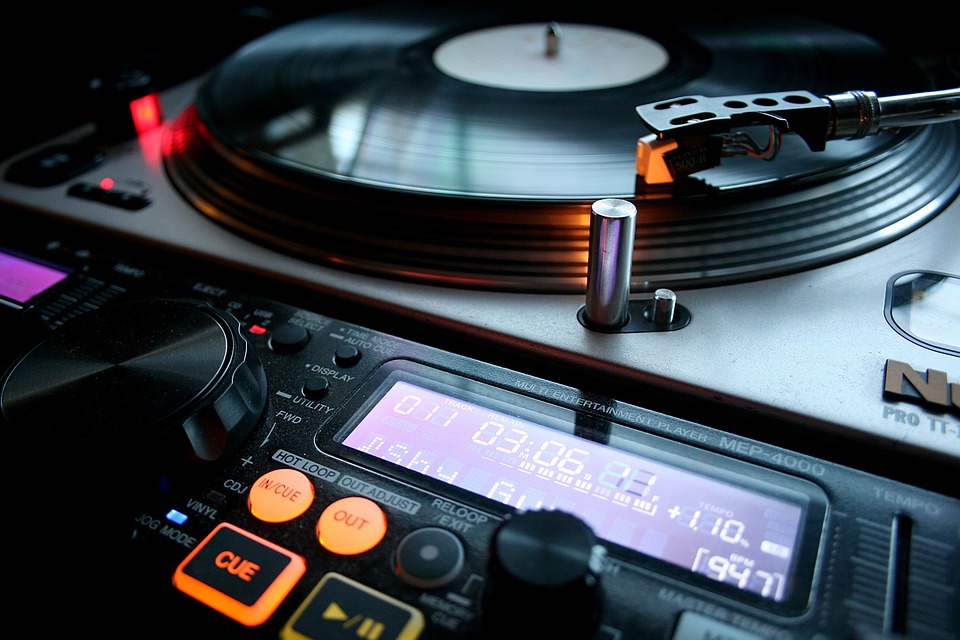Choosing the right mixer can significantly impact your music production and performance. Allen and Heath and Yamaha are two renowned brands in the audio mixing industry, offering a variety of models suitable for different needs. This article explores their features, usability, and sound quality to help you decide which mixer is the best fit for you.
Understanding Mixer Types
Before diving into a comparison between Allen and Heath and Yamaha, it’s essential to understand the types of mixers available. Audio mixers can be broadly categorized into analog and digital mixers. Analog mixers offer a straightforward interface with physical knobs and sliders, making them intuitive for live sound applications. Digital mixers, on the other hand, provide advanced features like automation, effects processing, and extensive routing options.
Both Allen and Heath and Yamaha produce a range of both analog and digital mixers, catering to different user needs. Musicians, sound engineers, and DJs often choose mixers based on the specific functionalities they require, such as portability, channel count, and sound processing capabilities.
Overview of Allen and Heath Mixers
Allen and Heath is known for its high-quality audio equipment, particularly in the live sound and studio recording sectors. Their mixers are celebrated for their robust build quality, intuitive layout, and exceptional sound clarity. Models like the Allen and Heath QU series and the GL series are popular among professionals for both live and studio settings.
One of the standout features of Allen and Heath mixers is their powerful onboard processing capabilities. Many models come equipped with built-in effects, EQ, and compression, allowing users to shape their sound without needing external processors. Additionally, the user interface is designed for ease of use, making it accessible for both beginners and seasoned professionals.
Overview of Yamaha Mixers
Yamaha has a long-standing reputation in the music industry, offering a wide range of audio mixers suited for various applications. Known for their reliability and advanced technology, Yamaha mixers are often used in both live and studio environments. Popular models include the MG series and the CL series, which are favored for their versatility and sound quality.
Yamaha mixers often feature intuitive digital interfaces, making them user-friendly even for those who may not have extensive experience with audio equipment. Their mixers typically include a range of built-in effects and processing options, enabling users to craft their sound efficiently. Yamaha also emphasizes connectivity, making it easy to integrate their mixers with other audio equipment.
Sound Quality Comparison
Sound quality is a critical factor when choosing a mixer. Both Allen and Heath and Yamaha are known for producing high-fidelity audio, but the nuances in their sound profiles can influence your choice. Allen and Heath mixers are often praised for their warm, rich sound, making them ideal for genres that require depth and character, such as jazz and acoustic music.
On the other hand, Yamaha mixers tend to deliver a cleaner, more transparent sound, which can be advantageous for genres like rock and electronic music, where clarity is paramount. The choice between these two brands often comes down to personal preference and the specific sound characteristics you are aiming to achieve in your music.
Usability and User Interface
The usability of a mixer is essential, especially during live performances or recording sessions where time is of the essence. Allen and Heath mixers are designed with an intuitive layout, featuring clearly labeled channels and controls, which allows for quick adjustments. The tactile feel of the knobs and faders is often highlighted as a significant advantage for users who prefer a hands-on approach.
Yamaha mixers also boast user-friendly interfaces, but they often incorporate a more digital approach. Models with touchscreen interfaces can offer advanced features and visual feedback, making it easier to navigate complex settings. However, some users may prefer the traditional physical controls found in Allen and Heath mixers, especially in high-pressure situations where quick adjustments are needed.
Portability and Design
Portability is another important consideration, particularly for musicians and sound engineers who travel for gigs. Allen and Heath mixers are generally known for their sturdy construction, making them durable for road use. However, some models can be heavier, which may be a factor if you frequently transport your gear.
Yamaha mixers are often designed with portability in mind, featuring lightweight materials without compromising on build quality. Many models are compact, making them easy to fit into tight spaces or carry in a backpack. If you are a mobile musician or DJ, the portability of Yamaha mixers could be a significant advantage.
Price and Value for Money
Price is always a crucial factor when selecting audio equipment. Allen and Heath mixers tend to be priced higher than some Yamaha models, primarily due to their premium build quality and advanced features. However, many users find that the investment is worthwhile, especially for professional applications where reliability and sound quality are paramount.
Yamaha mixers, while generally more affordable, still offer excellent value for the features they provide. They often cater to a broader range of budgets, making them accessible for hobbyists and semi-professionals alike. Ultimately, the choice may come down to your specific needs and how much you are willing to invest in your audio setup.
Customer Support and Warranty
Both Allen and Heath and Yamaha have established strong reputations for customer support. Allen and Heath offer a comprehensive warranty on their products, which can provide peace of mind for users. Their customer service team is known for being responsive and helpful, assisting with any technical issues that may arise.
Yamaha also provides solid customer support, with a wealth of online resources, including manuals, tutorials, and forums. Their warranty policies are competitive, ensuring that users feel secure in their purchase. When investing in audio equipment, it’s always wise to consider the level of support you can expect from the manufacturer.
Conclusion
In conclusion, both Allen and Heath and Yamaha offer exceptional mixers that cater to various needs and preferences. If you prioritize sound warmth, build quality, and intuitive controls, Allen and Heath may be the right choice for you. On the other hand, if you seek a lightweight, versatile mixer with a clean sound, Yamaha could be the better option.
Ultimately, the best mixer for you will depend on your specific requirements, budget, and personal preferences. It’s advisable to test both brands in a real-world setting if possible, as this can help you make a more informed decision. Regardless of your choice, investing in a quality mixer is a significant step toward enhancing your music production and performance experience.
FAQs
1. What types of mixers do Allen and Heath and Yamaha offer?
Both brands offer a range of analog and digital mixers, catering to different needs such as live sound, studio recording, and DJ applications. Their product lines include entry-level models for beginners as well as advanced mixers for professionals.
2. Are Allen and Heath mixers better for live performances?
Allen and Heath mixers are often praised for their robust build and intuitive layout, making them a popular choice for live performances. However, Yamaha mixers also have features that suit live applications, so the best choice depends on personal preference.
3. Can I use Yamaha mixers for studio recording?
Yes, Yamaha mixers are versatile and can be used effectively for studio recording. Many models come with built-in effects and processing options that are beneficial in a studio environment.
4. How do I choose the right mixer for my needs?
Consider factors such as sound quality, usability, portability, and budget. It’s also helpful to read reviews, watch demonstrations, and, if possible, test the mixers in a store to see which one feels right for you.
5. Do both brands offer warranty and customer support?
Yes, both Allen and Heath and Yamaha provide warranties on their products and have established customer support services. They offer online resources and direct assistance to help users with any issues that may arise.


